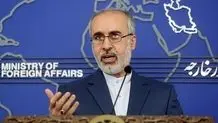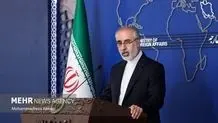Azerbaijan and Armenia agree on draft peace agreement

Azerbaijan and Armenia have agreed on a draft text of a peace agreement, Azeri Foreign Minister Ceyhun Bayramov announced on Thursday.
Bayramov said that Armenia has accepted Azerbaijan's proposals regarding the last remaining disputed points in the deal, though he did not specify what those were.
"At the next stage, Baku's expectations are clear - Armenia must amend its constitution, which still contains territorial claims to Azerbaijan," the minister said on the sidelines of the XII Global Baku Forum, according to a report by Azerbaijani website Haqqin.
Armenian Foreign Ministry also confirmed in a statement that Yerevan has reached a draft agreement with Baku and is ready to begin consultations on when and where to sign it.
Three separate officials familiar with the deal confirmed that both sides have approved the text of the agreement. However, they noted that some critical issues remain unresolved beyond the scope of the agreement itself.
One regional official told Middle East Eye that Armenia and Azerbaijan have yet to fully resolve their dispute over the European Union Monitoring Mission (EUMA) in Armenia, which tracks ceasefire violations along the front line.
A Western official, however, told MEE that Armenian Prime Minister Nikol Pashinyan is open to not renewing EUMA’s mandate, which is set to expire in February 2027. The official added that Baku, in principle, does not want the presence of any foreign monitors, including Russian forces.
The regional official also highlighted two other key outstanding issues - the dissolution of the OSCE Minsk Group and the amendment of the Armenian constitution.
Baku wants to formally dissolve the Minsk Group that operates under the Organisation for Security and Co-operation in Europe (OSCE). Azeri officials have previously accused the OSCE of being biased against them.
Azerbaijan also insists that Armenia revise the preamble of its constitution, which contains language that could be interpreted as making territorial claims on Azeri sovereignty.
The timing of these constitutional changes remains a matter of discussion. A Western official noted that there are questions about whether Baku would accept Yerevan signing the peace deal first and then proceeding with the constitutional amendments afterward.
The Zangezur Corridor
Additionally, officials confirmed that Armenia and Azerbaijan have agreed to withdraw legal cases filed against each other in international judicial organisations.
"It seems more like a breakthrough in the right direction rather than a done deal," the regional official said.
It is not immediately clear whether the two countries have reached an agreement on the establishment of the so-called Zangezur Corridor, a proposed transport route that would connect Azerbaijan to its exclave Nakhchivan through Armenian territory. If established, this corridor could become a major regional trade route.
The Second Karabakh War, fought in the fall of 2020, resulted in a decisive Azeri victory.
The conflict ended with a Russian-brokered ceasefire agreement on 10 November 2020, which saw Azerbaijan regain significant territories in and around the disputed Nagorno-Karabakh region that had been under Armenian control since the early 1990s.
Since then, tensions between the two sides have remained high. In September 2023, Azerbaijan launched a military operation that resulted in the full reintegration of Nagorno-Karabakh into Azeri control, a territory recognised as part of Azerbaijan by the United Nations. In the aftermath, tens of thousands of ethnic Armenians fled the region, fearing persecution.
Efforts toward a lasting peace agreement have since continued, with multiple rounds of negotiations involving Western and Russian mediators. However, issues such as border demarcation, the status of Armenian enclaves, and transport routes like the Zangezur Corridor have complicated the process.
The Western official added that some Azeri troop movements near the front still concern observers.
آخرین اخبار World را از طریق این لینک پیگیری کنید.




